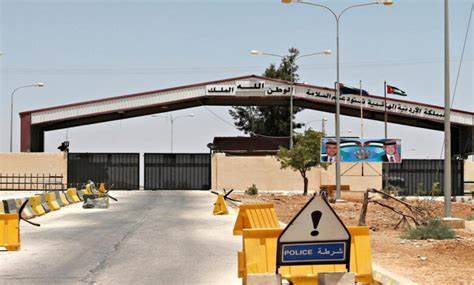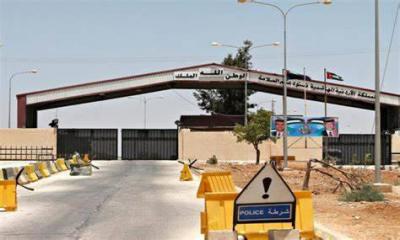Military and security leaders from Jordan and Syria met yesterday, Sunday, to discuss the growing drug trade across their shared border, which has experienced violent skirmishes primarily attributed to Iranian-backed armed forces with influence in southern Syria.
The Jordanian Foreign Ministry, in a statement, indicated that the talks were chaired by Major General Yousef Al-Hunaity, Chairman of the Joint Chiefs of Staff from the Jordanian side, and Major General Ahmed Husni, Director of General Intelligence, as well as Syrian Defense Minister Ali Mahmoud Abbas and Major General Hossam Louka, Director of General Intelligence, from the Syrian side. The discussions focused on the threat posed by drugs to the stability of the region.
The statement added, "The meeting addressed cooperation in confronting the danger of drugs, their production sources, smuggling, and the parties that organize and carry out these smuggling operations across the border into Jordan. It also discussed the necessary measures to combat smuggling operations and address this escalating threat to the entire region."
This meeting follows a commitment from Damascus, made during a meeting in May in Amman, to cooperate with neighboring countries to curb the flourishing Syrian drug trade in exchange for assistance to help Syria emerge from isolation following the civil war that has lasted over a decade.
Arab and Western governments accuse Syria of producing the amphetamine known as Captagon, which generates significant profits, and organizing its smuggling to the Gulf, using Jordan as a key transit point.
Jordan is particularly worried due to the security breakdown in southern Syria, and it has reiterated Washington's accusations that Iranian-backed forces, protected by units of the Syrian army, manage billion-dollar smuggling networks. The United States, Britain, and the European Union have accused the Syrian government of producing and exporting this narcotic, naming Maher Assad, the commander of the Fourth Division in the Syrian army and President Bashar Assad's brother, as a key figure.
The Syrian government denies involvement in the production and smuggling of drugs or collusion with Iranian-backed forces that have links to the army and security forces. Iran claims these allegations are part of Western schemes against it.
Jordan has run out of patience, according to local and Western intelligence sources speaking to Reuters, claiming it's faced with unfulfilled promises to curb the drug trade. In May, Jordan took matters into its own hands and launched a rare strike inside Syrian territory, destroying a drug factory linked to Iran.
Jordanian Foreign Minister Ayman Safadi stated earlier this month in Damascus that his country would not hesitate to take action against any threat to its national security, urging Damascus to act with greater resolve.
In recent weeks, the Jordanian army downed two Iranian drones coming from Syria, which it claimed were armed— a concerning development for Amman, which has previously accused Damascus of sending militants to carry out attacks.
Officials said Jordan requested additional American military assistance to strengthen security along the border. Since the start of the civil war in Syria, the U.S. has provided nearly one billion dollars to establish border monitoring points.
The length of the border between Jordan and Syria is approximately 375 kilometers.




